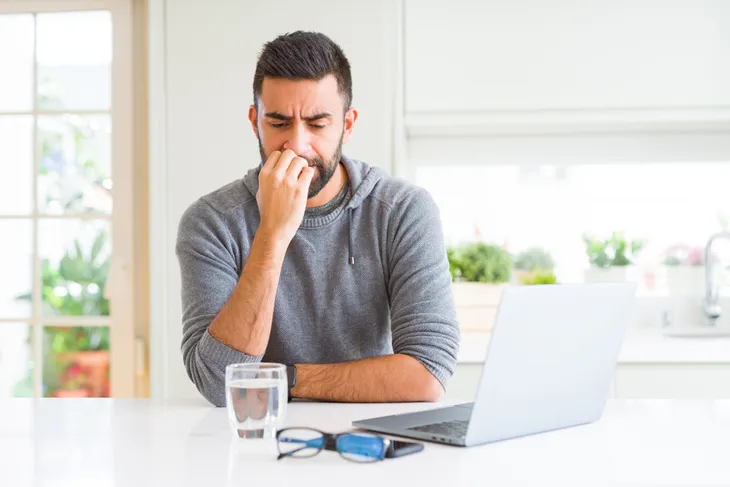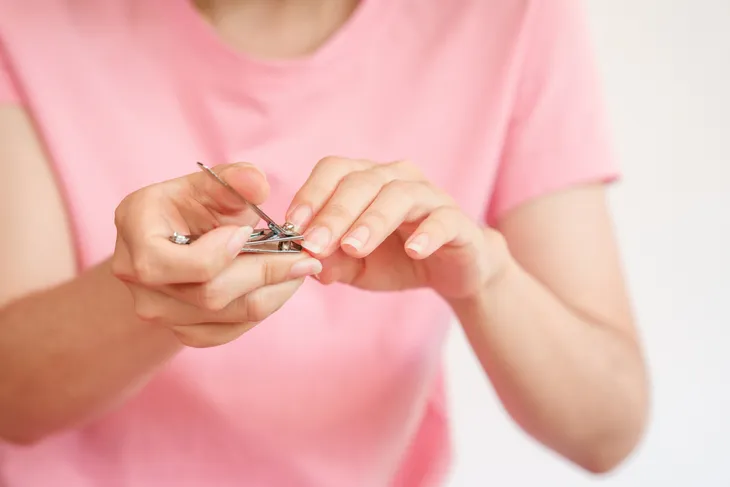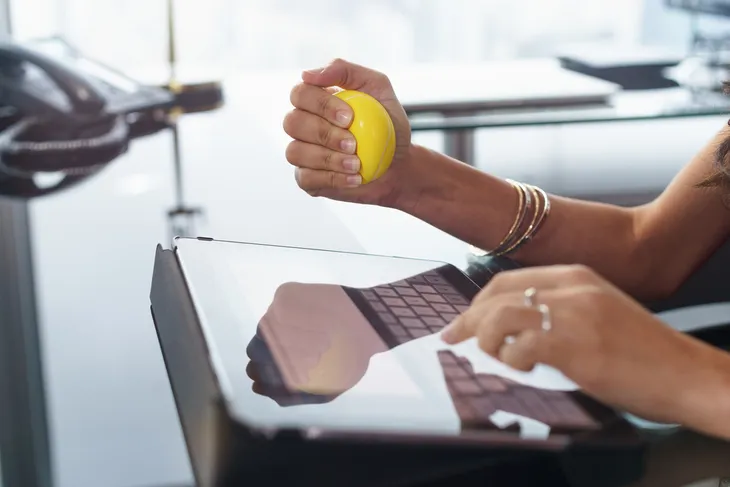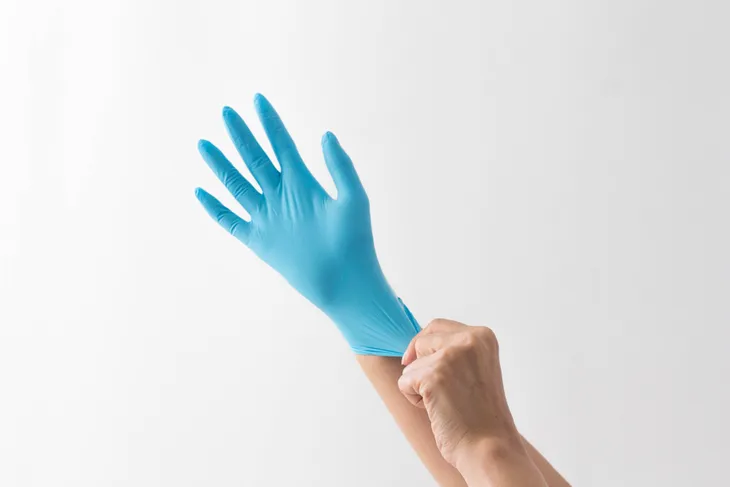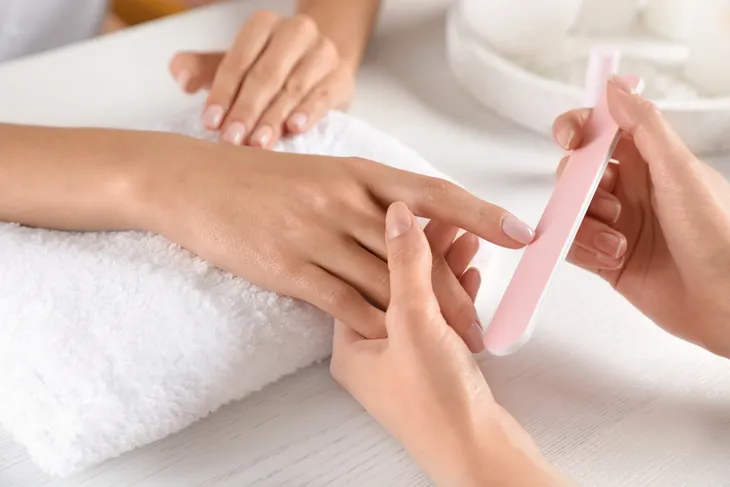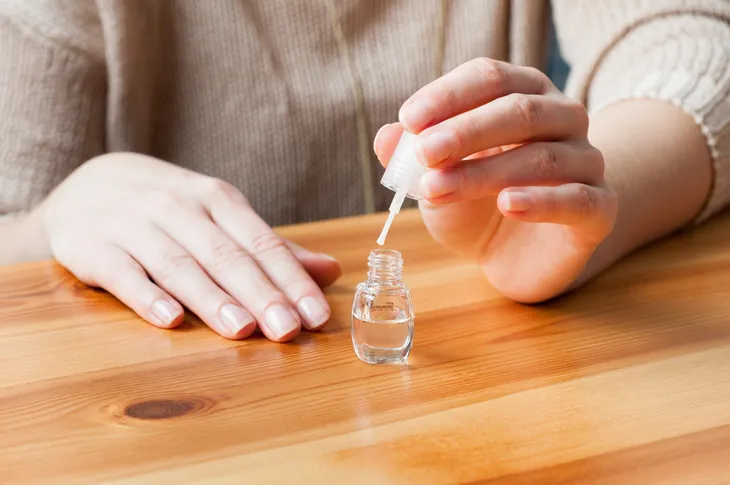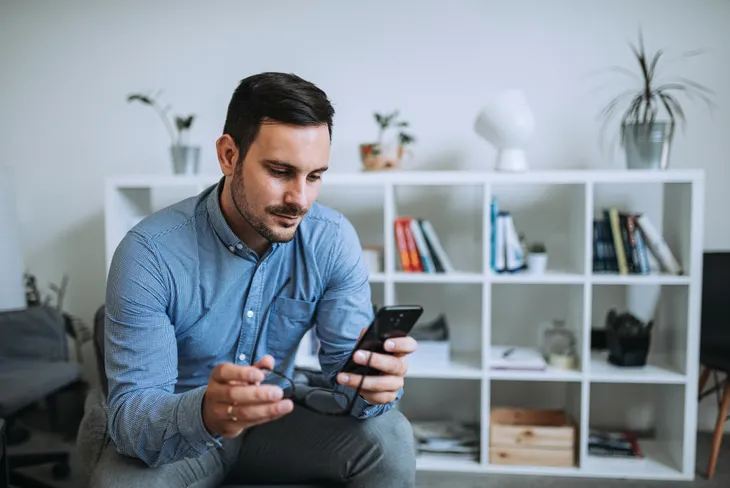Awkward, unsanitary, painful, and incredibly difficult to kick. Nail-biting is common, affecting as many as 30-percent of the global population, despite the way that it damages a person’s hands.
But the benefits of giving up nail-biting are about more than just aesthetics. The insidious habit also opens the door to a number of potentially long and short-term health problems. There’s no other way to say it really, you should stop biting your nails. To learn more about nail-biting, and for solutions on stopping altogether, keep reading.
Why Does It Happen?
As common as it is, chronic nail-biting or onychophagia is considered a pathological oral habit and grooming disorder. Some believe the habit to be genetic, though there’s still not enough evidence to back the claim up. Characterized by an uncontrollable and unconscious desire to bite the fingernails and surrounding tissue, nail-biting can develop long-term problems.
The habit often manifests in those prone to nervousness or anxiety, though the physical act of nail-biting isn’t always tied to emotional distress. Stress may indeed inspire nail-biting, boredom, hunger, and feeling insecure can too.
Potential Health Risks
Chronic nail-biting doesn’t typically cause long-term damage to the growth of the nail, but that’s not to say that it’s a healthy endeavor. The habit may harm your teeth, damage the skin around the nail, increase your risk of infection as well as increase your risk of contracting a cold or other infection.
Tip: Spot Triggers
You can’t modify any behavior until you begin to understand it, which is why spotting your most prevalent nail-biting triggers is a critical first step. Do you usually start chewing when you’re nervous, hungry, or bored? Do you aimlessly bite your nails while you work, or in certain social scenarios?
Nail-biting is habitual and unconscious, but once you rip the cover off its mechanisms you can begin to address its root causes by altering your daily routine, modifying your environment, and more.
Tip: Journal
Being mindful of the particulars of your nail-biting habit moment to moment is great, but there are limits to this strategy. Namely, your memory. Avoid leaning too heavily on your active memory by keeping a running journal of your nail-biting urges.
Be sure to document where you were, what you were feeling, and how strong the urge to bite your nails became. Documenting your nail-biting helps reinforce your conscious desire to stop for good, and creates a working guidebook that’ll help you more thoroughly understand the particulars of your condition.
Tip: Trim Frequently
This may seem self-evident, but staying on top of trimming your nails is an effective and proactive way for you to take charge right now. A lot of people tend to bite long nails more often than short ones. Longer nails are certainly easier to nibble on.
Trimming your nails on the regular may not eliminate your urge to bite entirely, but it can help reduce the frequency of your urges.
Tip: Keep Your Hands Busy
A common trick to kick the unsanitary habit of nail-biting is keeping your mouth and hands as busy as you possibly can. Stress balls, fidget spinners, car keys, and nail files can all help you burn that nervous energy without the need to resort to nail-biting.
Conversely, chewing gum, drinking from a straw, or phoning a friend whenever the urge to bite strikes can help too. No two nail biters are the same, and not everything you try is going to work. Experiment with all you have at your disposal until you find a solution that clicks.
Tip: Wear Gloves
Desperate times call for desperate measures. Wearing gloves 24-hours a day isn’t for the faint of heart, but for those of us hoping to put an end to nail biting once and for all, it may indeed be necessary. After all, you can’t bite what you can’t see.
In truth, anything that you use to form a barrier between your nails and your mouth can serve as an effective deterrent to habitual biting. Press-on nails, band-aids, and latex finger cots are readily available and accomplish precisely the same thing as a bulky pair of gloves.
Tip: Get a Manicure
Heading to the nail salon and splurging on a manicure can also add a layer of financial and aesthetic protection for your nails. Getting your nails done is relaxing and luxurious. A nice manicure has the power to elevate the perception of your nails and fingers, making it all that more disappointing to ruin by gnawing on them.
We wouldn’t recommend shelling out a bunch of money on fancy nails to those whose urge to bite is consistently overwhelming. That would just be wasteful. But, if you’ve advanced your ability to fight off your urges and are looking for a little reward/incentive to tip the scales in your favor, consider a manicure or maybe just a dip powder kit.
Tip: One Finger at a Time
Some of us work better with a gradual, rules-based approach to meaningful change. If this sounds like you, consider setting nail-biting ground rules for your hands.
For instance, you can begin your path to recovery by allowing yourself to bite only a few nails on each hand. Then, as your mindfulness and discipline improve, you can slowly reduce the available nails until you no longer bite them at all.
Tip: Awful Tasting Nail Polish
It has helped countless nail biters break free from their unsanitary habit. That’s why there’s so much variety in the anti-nail biting polish market for you to choose from. There’s ORLY No Bite, Vitry Anti-Bite Nail Varnish, and Mavala Stop Nail Biting just to name a few.
These clear-drying nail varnishes are easy to apply and create a real deterrent to habitual biting. You may need to steer clear of finger foods while actively using anti-bite nail polish though. Consider yourself warned.
Tip: Try Tech
If you’ve tried all of the time-tested solutions above or are just partial to leaning into electronic solutions, there’s always an app waiting to be downloaded. There are apps that replace your need for a journal by providing you with an easier way to document your urges and progress. Some apps use wearable technology to monitor habitual movement and remind the user to avoid biting.
We would still recommend trying the at-home remedies above before shelling out a bunch of your hard-earned cash on tech, but hopefully, it comforts you to know that Silicon Valley is itching to help out too.
The Takeaway
In addition to being an incredibly difficult habit to break, biting your nails can be painful. It’s certainly unsanitary. Quitting nail-biting once and for all can take a few tries and a combination of the methods mentioned above, but persistence and patience will win out if you let them.
Keep your hands busy, wear gloves, download an app, or coat your nails with anti-bite nail polish to give yourself an edge and, hopefully, stop biting your nails for good.



